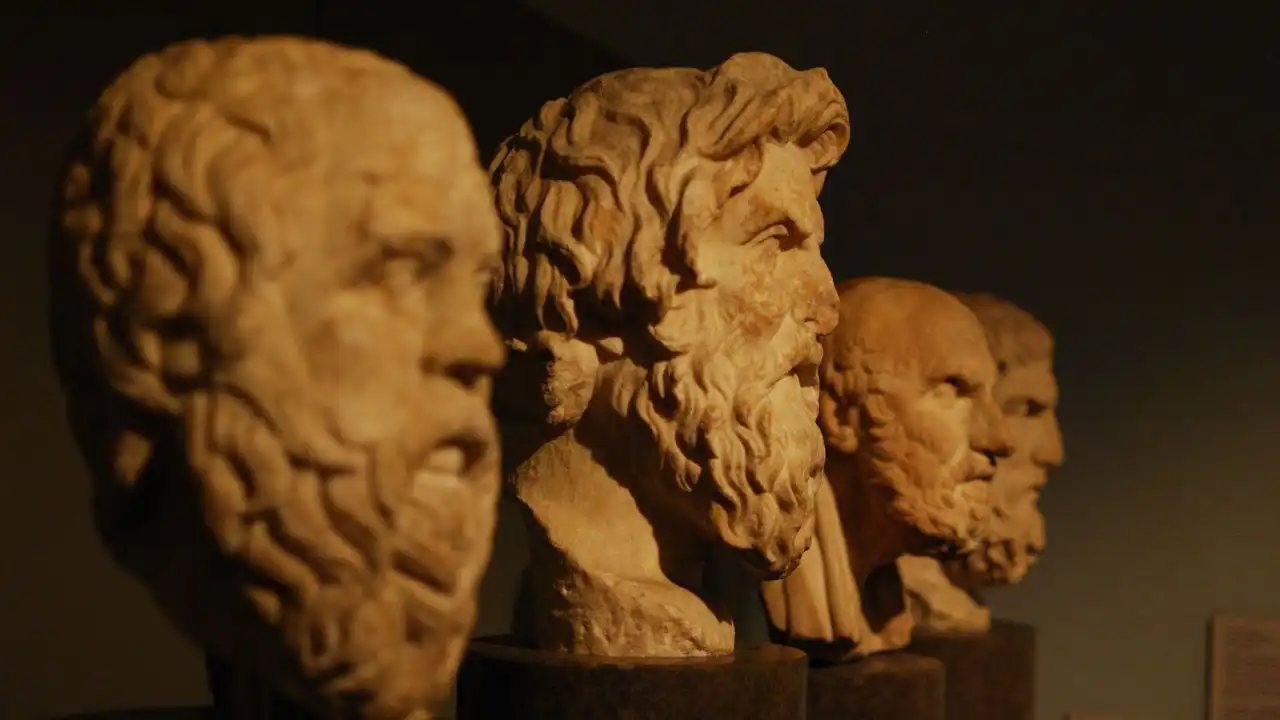
GRE Newsletter Subscribe
Enter your email address below and subscribe to our newsletter

Enter your email address below and subscribe to our newsletter

Hello folks! Welcome to the 12th GRE Word List blog. This series of blogs deals with Essential Words for the GRE and helps GRE aspirants bolster their GRE Verbal Preparation, and ace the GRE Verbal section.
If you haven’t already, check out our previous blogs here.
This is our 12th blog, and the number 12 made me think of the 12 Labors of Hercules.
Also, India’s been doing pretty great at the Paralympics (something that owes its roots to the Greek Olympics, but the first of which was held in Rome in 1960. Oh, those Romans don’t know where to stop to show Greek culture their ‘appreciation.’)
So, today’s theme is about GRE-Level English words that are named after Greek myth figures. Rest assured, reading this blog won’t be as laborious!
Today’s Essential Words for the GRE are Chronological, Herculean, Tantalize, Mentorship, and Sisyphean/Sisyphian.
Part of Speech – adjective
Definition – following the order in which they occurred.
Word Origins – from modern Latin chronologia, from Greek khronos ‘time’ + -logia
Synonyms – sequential, progressive.
Usage – Diary entries follow a chronological order.

Chronos is the personification of time, often confused with the Greek Titan Cronus/Kronos. Chronos is depicted as turning the wheel of the zodiac, signifying the passage of time.
Kronos, the titan was understandably confused with Chronos (some historians believe the confusion was deliberate), as his powers and dominion was time as well. A well-known Greek myth figure, Kronos overthrew his father Ouranos (primordial deity of the sky) along with his mother Gaia (primordial deity of the earth).
Upon learning that his fate was quite similar, in that his children would overthrow him, he decided to devour all of them. Rhea, his sister/consort did not want that to happen. She and Gaia tricked Cronus into swallowing a stone, instead of Zeus, the king of the Olympians. Zeus then led the rebellion against Cronus, and the Olympian Gods established order in the universe.
The Greek Myth family tree can be the premise for one of the most convoluted Logical Reasoning puzzles ever. If you want to know more about their lineage, you can check it out here.
Part of Speech – adjective
Definition – requiring great strength or effort; muscular and strong.
Word Origins – from Latin Herculeus ‘Hercules’ + -an.
Synonyms – laborious, strenuous, brawny.
Usage – Getting a GRE Score of 340 is a Herculean task.
Heracles, the Greek hero (the original, before the Romans adapted his story to their version) was an offspring of Zeus, and Alcmena. He is best described as a demi-god, as he became a minor god upon his death.
Since his existence was proof of Zeus’ infidelity, Hera, Zeus’ sister/wife (don’t ask) was determined to interfere with the lives of all of Zeus’ mortal offspring, as a way of getting revenge. Despite all of Hera’s best efforts, Heracles was born. To mollify Hera, he was named Heracles, ‘The Pride of Hera / The Glory of Hera.’
Yet, Hera was determined to mess with his life. She drove him mad, and he killed his own children. As atonement, he had to perform the ‘Twelve Labors of Hercules.’ Eurysthes, his brother, enemy, and High King, decreed that if Heracles failed, he’d be killed. Zeus, to protect his divine offspring, made Hera promise that if Heracles succeeded, he’d be made immortal/a God.
What followed, was Heracles’ establishment as the greatest Greek hero of all time, a series of testaments to his strength, wits, and destiny.
Read more about the Twelve Labours of Heracles here.
Part of Speech – verb
Definition – torment or tease (someone) with the sight or promise of something that is unobtainable; excite the senses or desires of (someone).
Word Origins – late 16th century: from Tantalus + -ize.
Synonyms – torment, titillate, allure.
Usage – The dog’s owner tantalized it with the promise of a juicy bone.
Tantalus, referred to as the King of Phrygia by some, was once invited to Zeus’ table for a feast. While there, he stole the Gods’ secrets of ambrosia and nectar, with the intent to reveal them to his people.
To appease the gods, he offered his own son as a gift/sacrifice. He had his son cooked into meals to be served to the gods when they were to visit him. (Filicide and cannibalism were very taboo in Greek Culture. Duh!)
Horrified by this act, the Gods inflicted upon him, the punishment to be cast into Tartarus for eternity.
There, he was to stand beneath a tree bearing fruit, the branches of which would always be just out of reach, and in a pool of water which would always recede just out of reach when he wanted to take a drink.
What a cruel diet!
Part of Speech – noun
Definition – the guidance provided by a mentor, especially an experienced person in a company or educational institution.
Word Origins – mid 18th century: via French and Latin from Greek Mentōr + -ship.
Synonyms – tutelage, instruction, coaching.
Usage – Under the mentorship of her tutor, she was able to crack the GRE, and get into the graduate program of her choice.

Mentor was an old man and a friend of Odysseus/Ulysses. Although described as an old man with little use, Athena, the goddess of wisdom & strategy, and protector took the form of Mentor to guide Telemachus, son of Odysseus in his quest to find his father and bring him back to Ithaca.
Odysseus, who was at sea for more than 20 years, returns home to his wife Penelope and slaughters all the suitors who wanted to take his place, with the help of Telemachus.
Part of Speech – adjective
Definition – denoting or relating to a task that can never be completed.
Word Origins – mid 17th century: from Latin Sisypheius (based on Greek Sisyphus) + -an.
Synonyms – burdensome, futile, fruitless, unrewarding.
Usage – He knew he was engaged in a Sisyphean task; yet he ambled on, afraid to raise questions.
Sisyphus was the King of Ephyrus (now Corinth) and considered himself cleverer than the gods. That was his fatal flaw – hubris. When he crossed Zeus by revealing one of his secrets, Zeus ordered Thanatos, The God of Death to chain Sisyphus in Tartarus.
Sisyphus, demonstrating his cleverness, got Thanatos to demonstrate how the chains worked and trapped him in his own chains. He’d successfully cheated death. Some versions have the Gods threaten Sisyphus with a fate worse than death if he doesn’t release Thanatos. And he complies.
The second time, he asked his wife to disrespect his corpse, so he could come back in the form of a spirit. After instructing her to see to the funeral arrangements properly, he refused to leave the human plane. Because he’d cheated death twice, he had to be made an example of.
As punishment, Zeus arranged for Sisyphus to roll a boulder up a hill. But, as soon as he neared the top, the boulder would slide down the hill, and he had to start over. This was an infinite loop. The worst part was, each time Sisyphus neared the top, he’d get hope of completing his ordeal. And every single time, he’d fail.
A fate worse than death indeed.
Watch the video below or here to learn more about GRE Words!
That’s all for this Essential Words for the GRE blog, folks. If you’ve learned anything from this, let it be to never trust Greeks bearing gifts. (wink wink)
Check us out on our Social Media Handles!
Want more Essential Words for the GRE, but in Flashcard format?
Check out our Instagram page, where we post regular content.